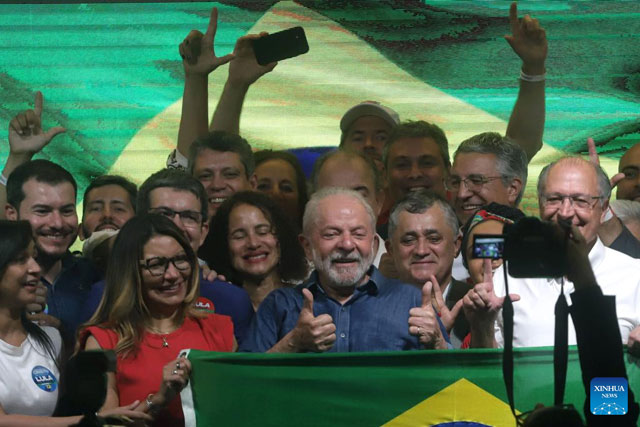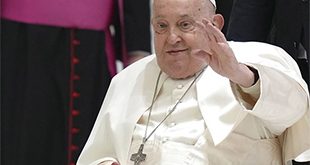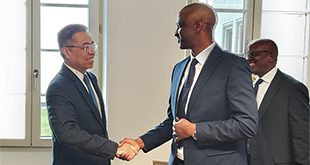
Former president Lula da Silva wins second round of Brazil’s presidential elections
Brasilia, Brazil | Xinhua | Former Brazilian President Luiz Inacio Lula da Silva of the Workers’ Party won the second round of presidential elections on Sunday, thereby setting to serve a third four-year term beginning Jan. 1, 2023.
Figures released by the Superior Electoral Tribunal (TSE) showed that Lula da Silva obtained more than 60 million votes, or 50.89 percent of the vote, surpassing current President Jair Bolsonaro of the Liberal Party, who received over 58 million votes, or 49.11 percent.
This is the smallest margin in a second-round presidential election in Brazil’s history.
In the first round held on Oct. 2, Lula da Silva garnered 48.3 percent of the vote, compared to 43.2 percent for Bolsonaro.
Lula da Silva, 77, served as the Brazilian president for two terms between 2003 and 2010. He was jailed on corruption charges between 2018 and 2019. In the latest presidential elections, his strength lay particularly in voters from the impoverished northeast of Brazil.
Lula da Silva focused his campaign on social issues, making pledges including minimum wage increases, strengthening of state-owned companies, and efforts against hunger and poverty.
“The first measures of our government will be to free 33 million people from hunger and more than 100 million Brazilians from poverty,” Lula da Silva said in an open letter Thursday.
Proposing an economic policy featuring both state actions and private initiatives, he said, “it is possible to combine fiscal responsibility, social responsibility, and sustainable development, and that is what we are going to do, following the trends of the world’s main economies.”
“We will initiate the digital transition … with an industrial policy that supports innovation, stimulates public-private cooperation, strengthens science and technology, and guarantees access to financing at adequate costs,” he added.
Lula da Silva also pledged to expand trade and technological cooperation between Brazil and other countries, help enhance regional integration, and promote “fairer and more democratic relations between countries.” ■
 The Independent Uganda: You get the Truth we Pay the Price
The Independent Uganda: You get the Truth we Pay the Price


